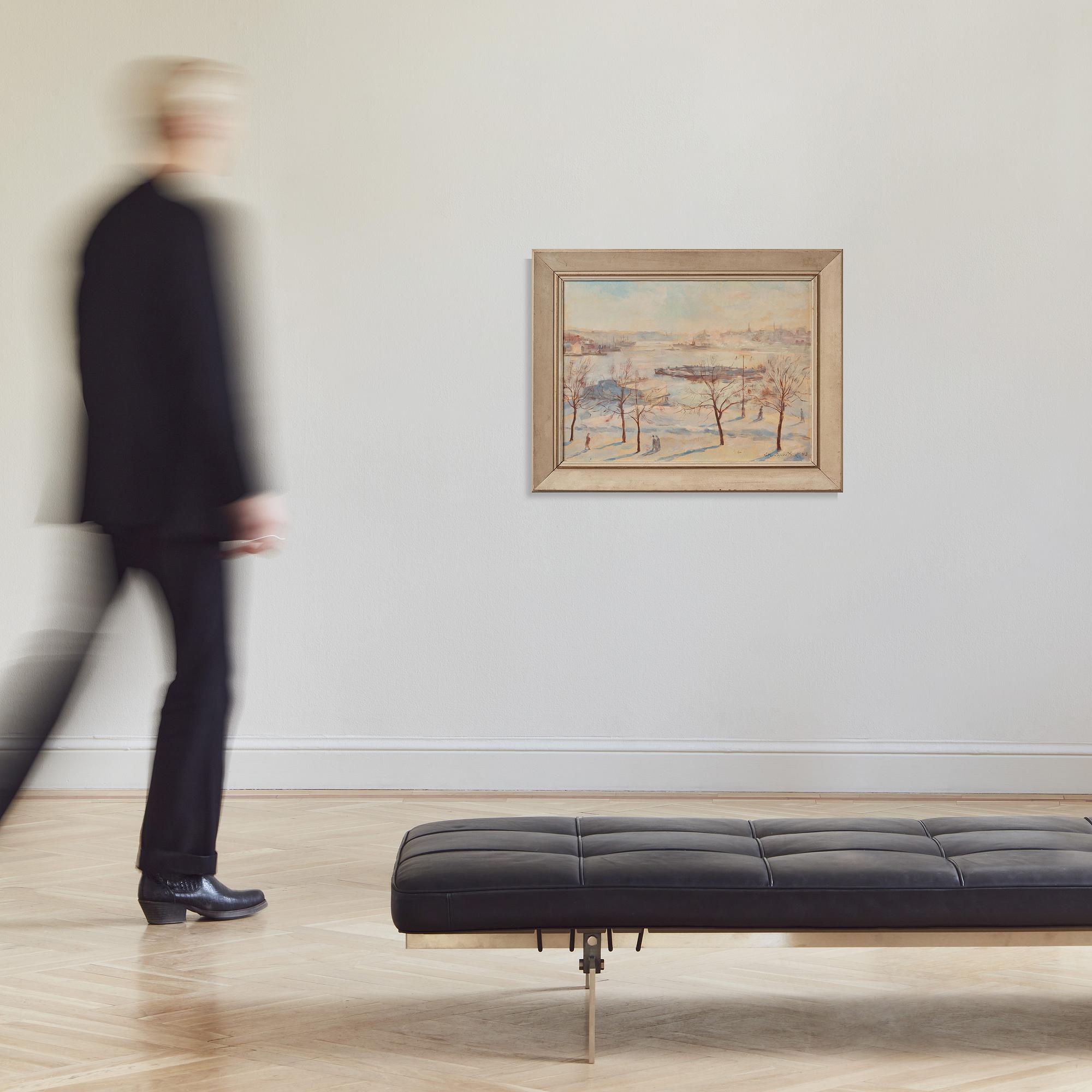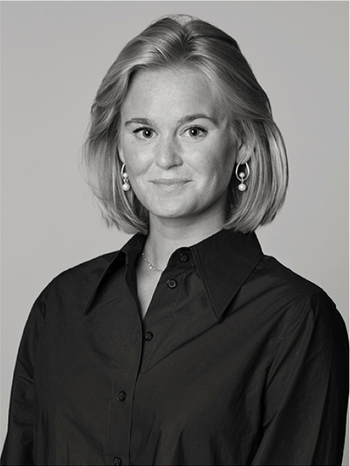Lotte Laserstein
Winter on Strandvägen, Stockholm.
Signed Lotte Laserstein and dated -43- Panel 55.5 x 75 cm.
Alkuperä - Provenienssi
Lars Vikström Collection.
Näyttelyt
Moderna Museet, Stockholm/Malmö, "Lotte Laserstein - Ett delat liv", 11 November 2023 – 14 April 2024.
Muut tiedot
Lotte Laserstein's Stockholm
In the summer of 1937, Lotte Laserstein arrives in Stockholm for the first time. The political climate has hardened in Germany and with her Jewish background she seeks refuge. She has a German friend in Stockholm and travels here to investigate whether Sweden might be a possible country of exile and eventually decides to stay.
Lotte Laserstein's biographer and biographer Anna Carola Krausse says she thinks Laserstein liked Stockholm as a city, because as a little girl she grew up in Gdansk near the Baltic Sea and ‘all the water views probably reminded her a bit of her childhood’. ‘But of course she also realised that Stockholm was very far from the vibrant and lively cultural life she left behind in Berlin, which was the great inspiration for her art.’
In Stockholm, she lived mainly in Östermalm in a small apartment on Grevgatan and later for a few years on Danderydsgatan.
Although Laserstein lived in Stockholm for many years, she did not paint many pictures of the city, and it is unusual for her Stockholm pictures to appear at auction. Krausse knows of about a hundred paintings, most of which were created in the late 1930s and early 1940s. ‘I think it was a way for her to familiarise herself with her new home, to paint the city - and besides that, they were subjects that sold well.’ After that, her Stockholm paintings seem to have largely ceased.
In her Stockholm paintings, she often views the city from a bird's eye view. Krausse says that the high vantage point ‘enables orientation on the one hand, but on the other it can also be interpreted as a visualisation of the feeling of having lost one's roots, the feeling of not belonging.’
The style Laserstein chooses for his Stockholm pictures is also worth noting, as the paintings are executed in an unusually airy, seemingly impressionistic detachment, perhaps to counter criticism of the earthiness of his painting. The auction's painting of Strandvägen in winter is a clear example.
Lotte Laserstein actually lived and worked in Stockholm until 1959. But despite commissions for portraits and several exhibitions, she never became part of the city's art and cultural life and never managed to break into the Swedish art scene.
She decided to move to Kalmar, where she stayed for the rest of her life. A prestigious portrait commission and a successful exhibition in the city helped her build a new clientele and career. By 1954 she had also bought a summer house on Öland, where she spent a lot of time, and until 1959 she alternated between Stockholm, Kalmar and Öland.





















































